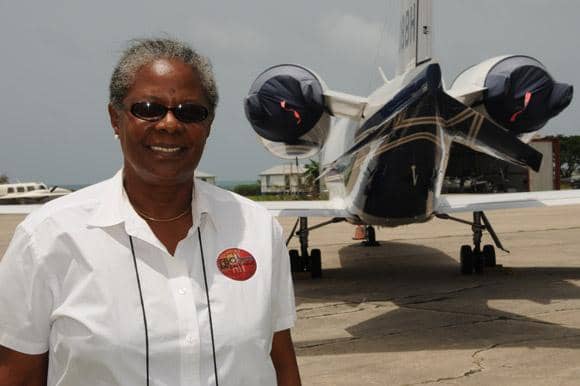
by Makeda Mikael
Growing up in Antigua Girl’s High School and later Antigua Grammar School for science & sixth form) I was taught for the most part by white English teachers and some West Indian whites who were referred to as Mistresses and a few old white men at Grammar School with lots more black male teachers – they were called Masters.
We learned English Literature & English History, and our interest in science was to balance it by love of the Romantics and the poets of England. Beginning with the rawness of Chaucer to the melancholy of Wordsworh, and the last Duchess of Browning, our syllabus was that almost of every white English High School, and history meant British History, for the West Indies as the islands were called then, was part of the jumbled British colonial grouping which produced our ‘Paddy fields and Plantations’ mentality, devoid of our own history.
How could the journey of death from Africa, our homeland be explained in a way which makes it palatable to civil society; or for that matter the darkness of life in the fields and on the blood drenched plantations; and the loss of everything that made us African. How could we slide into acceptance of our new freedom without recompense, if we knew the real story, and not just his story.
Would we really speak the language of the slaver nation with such pride, would we so arrogantly wear their clothes, stupidly adding on to our naturally short hair to look like them, become selfish consumers, just like them, corrupt ourselves to be rich, just like them.
A people without history adopts the history created for them by the vacuum of their own history, and this is visible in the ability of Caribbean people who have travelled to become instantly very British, or American, Canadian, or even continental African.
This ability is not a freak situation it represents need of history, need to fill that vacuum of four hundred years. The dark days of slavery have been put to sleep, thank God for the plantation records of the slavers, so meticulously executed with pride of ownership, those born, their days and nights enslaved, their dreadful punishments and creatively evil methods of murder by their owners over four hundred years.
Facing one’s history from records allows the imagination to free the many unexplained horrible secrets which continue to mutate in our lives of post slavery traumatic stress. So much that has been buried continue to haunt us if only for a moment we stopped long enough to think and ask ourselves about our hatred of our own and why we do not love ourselves.

Surviving on the plantation required that we live ‘Each man for himself’ without the rest of the prayer ‘God for us all!’
Advertise with the mоѕt vіѕіtеd nеwѕ ѕіtе іn Antigua!
We offer fully customizable and flexible digital marketing packages.
Contact us at [email protected]
















If you don’t know that you are Hebrew then you still don’t know your history.
Makeda, Makeda, Makeda absolutely brilliant article.
Beautiful article and yes we are the Israelites the bible speaks about if you do a thorough research you’ll see it for your self and be awakened by the truth google iuic and watch and learn from them and if it sense to you then good but if not I don’t know what else to say…
Well said, Makeda.
We should be using the knowledge we gained and our dexterity with the enslaver’s language to write our own heritag;, not continue to hold onto his and disparage ours. Sort of an inferiority complex.
Even though we are well educated, successful in business, etc, we still have those feeling that we are not good enough. We hate our colour, our hair, our nose, mouth. We pay a lot of money for our children to go to these hoity-toity schools, practicing to speak in a way that has nothing to do with our culture, and making sure that the only friends they bring home are the ones from hoity-toity homes, the only games they play are imported ones, and overall they end up despising everything that was part of their forebears and embracing everything that tells them nothing about who they are.
The RastafarI, the Pan African, the Black Power #Movements definitely are not perfect, but they sure kept our foreparents legacy’s/traditions/cultures on some of our minds!
The #Struggle #Continues!
Comments are closed.